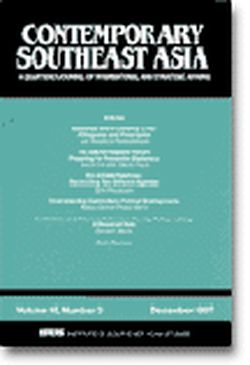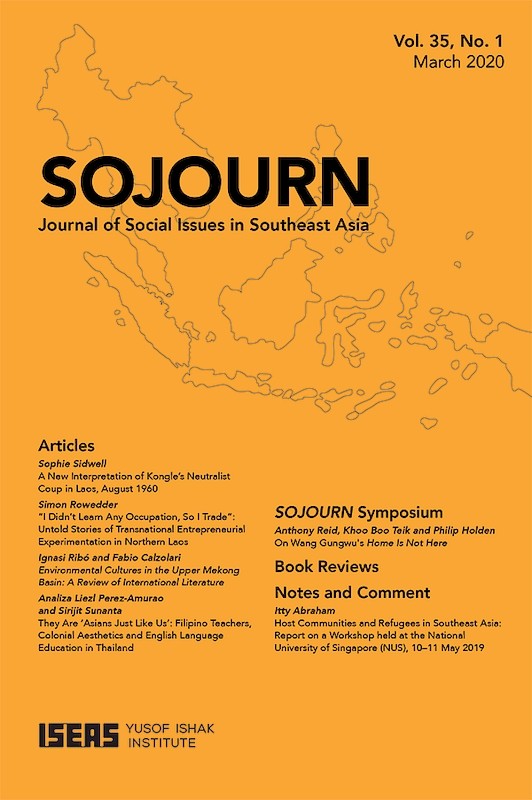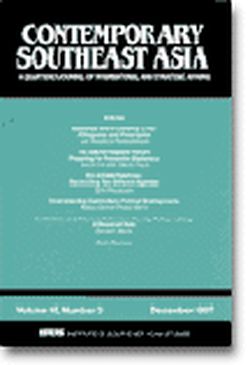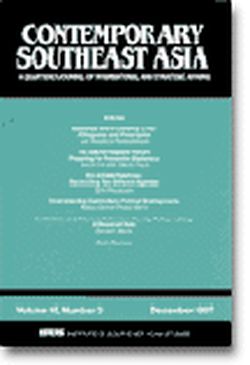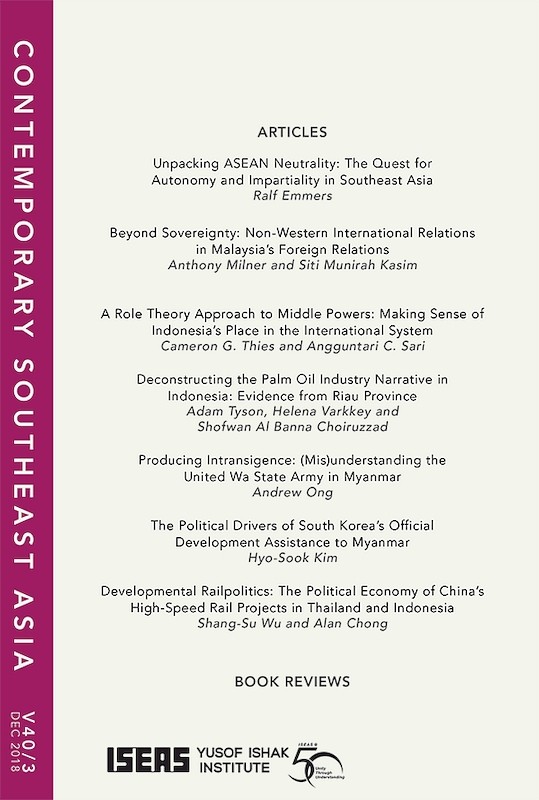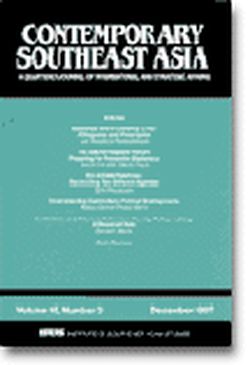Contemporary Southeast Asia: A Journal of International and Strategic Affairs Vol. 12/4 (Mar 1991)
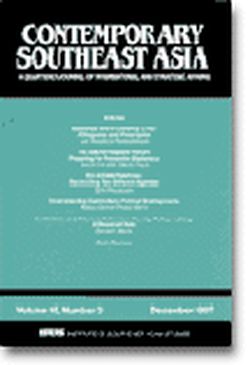
Date of publication:
March 1991
Number of pages:
125
Code:
CS12/4
Contents
-
Preliminary pages
- ARTICLES
-
Regional Arrangements and International Security in Southeast Asia: Going Beyond ZOPFAN, by Muthiah Alagappa, author see abstractRegional approaches to promote international peace and security are regaining prominence in today's post-cold war environment. In Southeast Asia, calls for the establishment of a Zone of Peace, Freedom and Neutrality (ZOPFAN) as a means of reducing tension and preventing convict have been revived. However, the assumptions underscoring the "peace through neutrality" component are not well-founded and the concept of neutrality is not relevant to contemporary circumstances. The "peace through law" and "peace through regional cooperation" components provide a better basis for developing a more broad-based, multi-layered framework for peace and security in the region. The article also stresses the importance of regional community-building, and the political and socio-economic development of the countries in the region. The proposed framework seeks to actively engage the extra-regional powers in this process instead of excluding them.
-
Japan's National Security and Cultivation of ASEAN Elites, by Anny Wong, author see abstractFor all its prosperity, Japan is largely dependent on its salient environment for its survival. Heavy reliance on oil and resource imports, and trade and overseas markets necessitate a stable and secure milieu to ensure continued economic growth. In the early 1970s, Tokyo came up with the Comprehensive National Security Strategy after recognizing the need to boost relations with its regional neighbours, particularly in Southeast Asia. The strategy is generally aimed at helping those countries' economic, political and social development by extending assistance to promote cultural, educational, technical and other exchanges. From the beneficiaries' point of view, however, the programme has been criticized for solely advancing Japanese interests. Despite recent efforts to expand the volume of exchanges and increase the level of financial support for the programme, much is left to be desired. The development of this exchange programme becomes especially significant in creating a stable environment conducive to Japan-ASEAN co-operation.
-
Indonesia-Vietnam Relations Under Soeharto, by Leo Suryadinata, author see abstractThis article attempts to examine bilateral relations between Indonesia and Vietnam during the New Order government, with special reference to the internal differences over the strategic threat perception of China and the ASEAN stand on the Cambodian question. It also discusses Indonesia's desire to play an effective role as a regional power in Southeast Asia.
-
Liberalization, Co-operatives and Ekonomi Pancasila, by Armin Taubert, author see abstractThe liberalization drive in recent years has pushed the ideological side of Indonesia's "New Order" into the background. As the economy seemed able to overcome the difficulties resulting from the decline in oil prices in the early 1980s, however, pressures have built up for the ideals and values on which the legitimacy of the "New Order" is based to be addressed, namely, the equitable distribution of the benefits of development. President Soeharto has reacted to this criticism by proposing an enhanced role for the co operatives. They are to be given the opportunity to acquire the shares of private companies. This article examines the proposal and its implications and gives a broad outline of the political and ideological background against which the initiative has to be seen.
-
Soviet Economic Aid to Vietnam, by Buu-Hoan, author see abstractThis is a review and description of two books in Vietnamese that provide a rare glimpse of Soviet economic aid to Vietnam. One is an official document while the other is a translation of a Russian book but both contain frank and unexpectedly objective information and assessments of various aspects of the Soviet-Vietnamese economic linkage. As the contributors to the two books are top Vietnamese policy-makers and Soviet experts, this article has extracted all the relevant factual data as well as analytical information regarding recent developments in Soviet economic aid to Vietnam.
- BOOK REVIEWS
-
BOOK REVIEW: Ethnic Conflict in Buddhist Societies: Sri Lanka, Thailand and Burma edited by K M de Silva et al., by David Brown, author
-
BOOK REVIEW: Political Economy of Non-Alignment: Indonesia and Malaysia by Kalyani Bandyopadhyaya, by Andrew McIntyre, author
-
BOOK REVIEW: China and South Asia by Ramakant, by Asad-ul Iqbal Latif, author
-
BOOK REVIEW: The Asian Dilemma in U.S Foreign Policy: National Interest versus Strategic Planning by K Holly Maze Carter, by Leszek Buszynski, author

